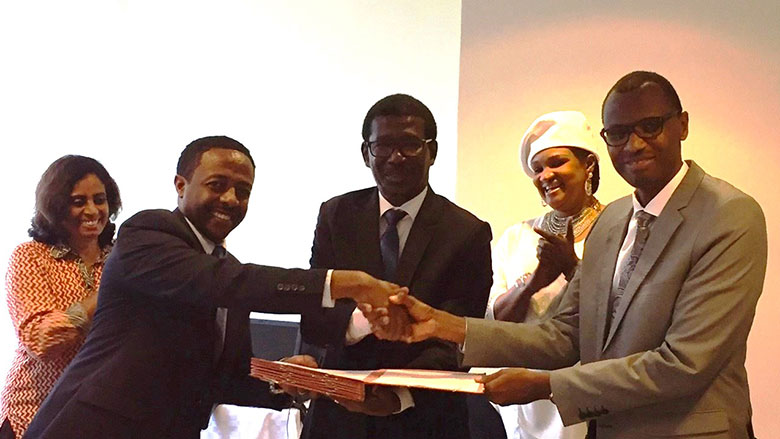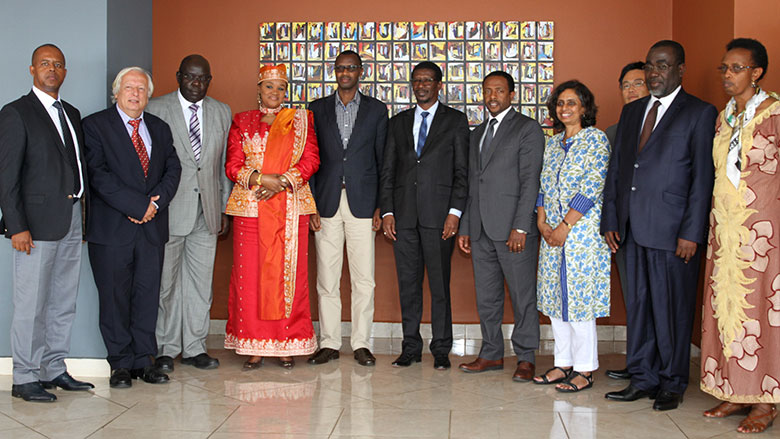The governance structure was adopted at a series of high level meetings held on July 29 - 30, 2016 in Kigali, Rwanda. On July 29, PASET’s Steering Committee was converted into its Board of Directors, chaired by Senegal’s Minister of Higher Education and Research, Prof. Mary Teuw Niane. Other Ministers represented on the Board include: Dr. Papius Malimba Musafiri, co-Vice Chair and Rwanda’s Minister of Education; Mr. Shiferaw Shigute Wolassa, co-Vice Chair and Ethiopia’s Minister of Education; Mr. Fred Matiang'i, Cabinet Secretary for Education for Kenya; and Prof. Ramata Ly-Bakayoko; Minister of Higher Education and Scientific Research, Cote d'Ivoire. The Governments of Kenya and Cote d’Ivoire are the most recent governments to join the Partnership. The World Bank is also represented on the Board.
PASET’s new Executive Committee comprises technically qualified people from the continent who have proven their commitment to PASET, as well as a World Bank representative. Its Executive Director is Prof. Aminata Sall Diallo, a well-known scientist in Senegal. A Consultative Advisory Group, comprising of independent multi-sectoral scientists and education experts, is in process of being reconstituted. It will provide demand-driven expertise and advisory services to the leadership.
All of the members of PASET’s governance bodies shall devote their time and effort on a pro bono basis.
“I have been involved in the PASET initiative from the beginning, and in the last three years, I’ve seen its members show strong commitment, enthusiasm and team work to get the Partnership off the ground,” said Prof. Diallo, head of the Executive Committee. “I feel fortunate to witness this key milestone for PASET as it formalizes its governance structure and adopts its first charter.”
For Prof. David Kimutai Some, an EC member and alternate representative of Kenya’s Cabinet Secretary on the Board, a key outcome of this meeting was the addition of Kenya as a member and gaining a clearer understanding of PASET’s objectives, particularly its principle of pulling the region’s resources together to build its skilled human capital.
“PASET has created a strong plan for enhancing the region’s science, engineering and technology capacity, one that complements the existing Africa Centers of Excellence institutions in the training of PhDs,” Prof. Some said. “The key to meeting its goals now is funding, and we need strategies in place for it to achieve sustainable funding.”
The Board and Executive Committee also finalized PASET’s annual work plan for the coming year. A few of the key activities planned include:
- The Regional Scholarship and Innovation Fund (RSIF). Selection of the PASET RSIF host universities and enrolling the first batch of PhD students in high quality programs in four thematic areas; mobilizing additional governments, private sector and partners to grow the Fund; ensuring that the Fund is a model of transparent and efficient governance.
- Develop high quality universities in SSA: Establishment of partnerships with international universities for sandwich PhD programs under the RISF; benchmarking of SSA universities on a voluntary basis to improve quality.
- Regional TVET Centres of Excellence: Preparation of Concept Paper to launch a feasibility study on the centres; identification of countries willing to host them and financing sources.
- Knowledge Sharing and Advocacy: Hold the next PASET Regional Forum.
- Consultative Advisory Group: Reconstitute the Consultative Advisory Group with adequate representation for gender, regional and linguistic representation of Africa and participation of relevant partners, and including expertise on research, higher education and TVET.
- Expand the Partnership: Encourage more SSA countries to join PASET and consolidate collaboration with partner countries from outside Africa and the private sector.
The next PASET Regional Forum is scheduled to be held in early 2017.


